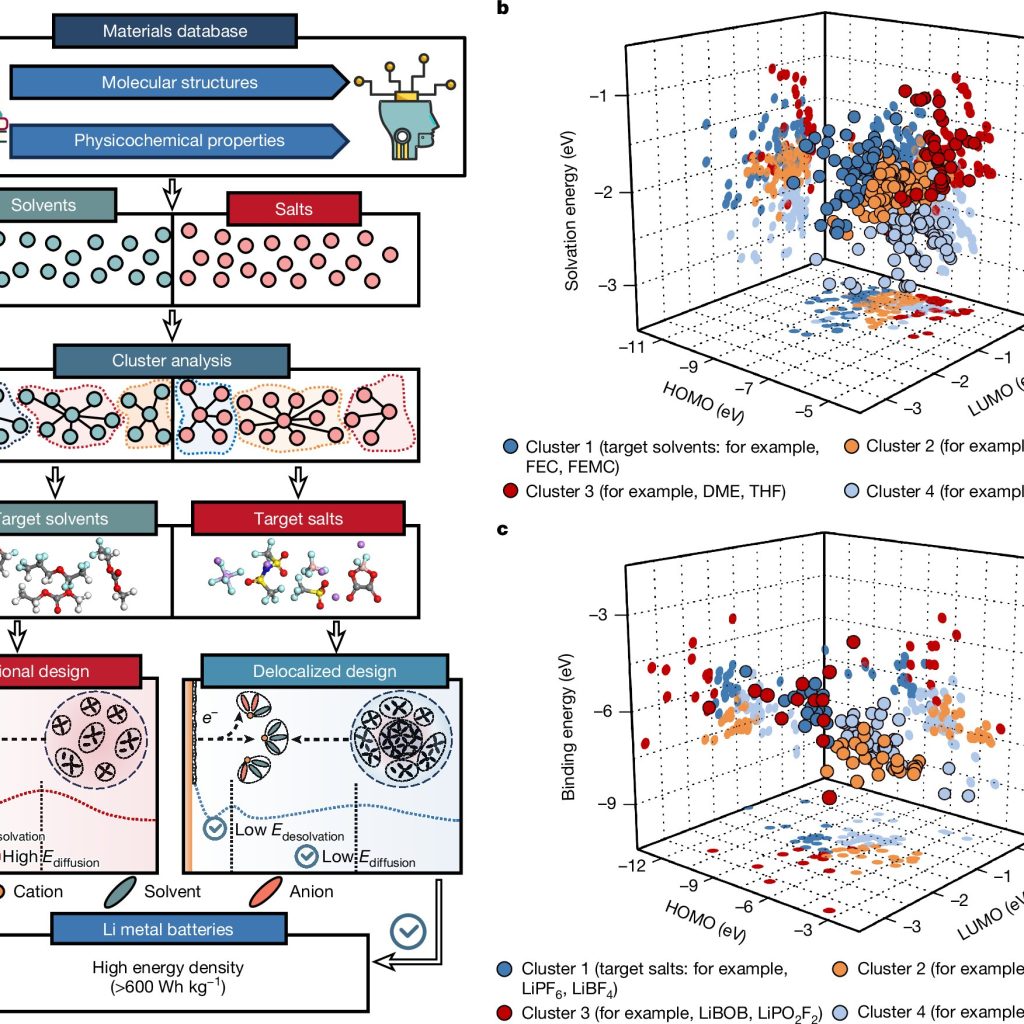Researchers at Tianjin University in China say they have developed a lithium battery that achieves more than double the energy density of Tesla’s most advanced cells, marking what could be a step forward for electric vehicle technology if it can be scaled for commercial use.
Tesla’s current batteries reach about 300 watt-hours per kilogram (Wh/kg), while the new design recorded 604.2 Wh/kg, according to findings published in Nature. A higher energy density allows batteries to be smaller and lighter, extending the driving range of electric vehicles while improving performance.
The team addressed one of the core limitations of conventional lithium batteries: the electrolyte, a liquid medium that can become rigid as lithium ions cluster together, restricting movement and efficiency. By designing an alternative electrolyte with a less ordered structure, the researchers said they improved ion transport and stability.
“The delocalized electrolyte design overcomes the intrinsic constraints of conventional electrolytes by inducing a highly disordered solvation microenvironment, effectively reducing dynamic barriers, stabilizing interphases and offering substantial potential for transformative advances in battery performance,” the researchers wrote.
In laboratory tests, the prototype battery remained stable for over 100 charging cycles, operated at -60°C without freezing, and did not ignite when exposed to an open flame. However, the project remains at a proof-of-concept stage and is not yet ready for mass production.
If successfully developed for large-scale application, the technology could extend the range of electric vehicles, improve renewable energy storage, and enhance battery safety in consumer electronics.
Resource:
- He Huang et al, Delocalized electrolyte design enables 600 Wh kg−1 lithium metal pouch cells, Nature (2025). DOI: 10.1038/s41586-025-09382-4
